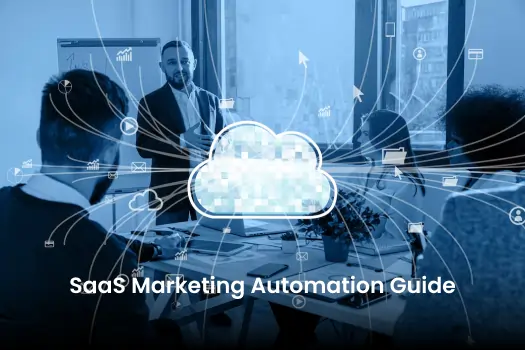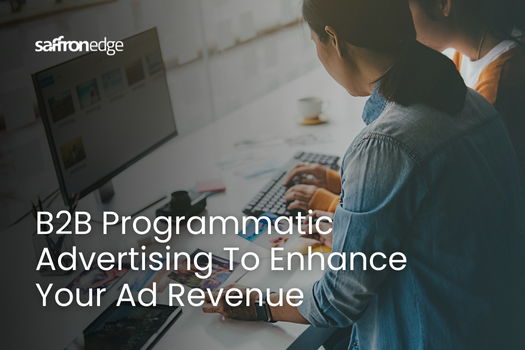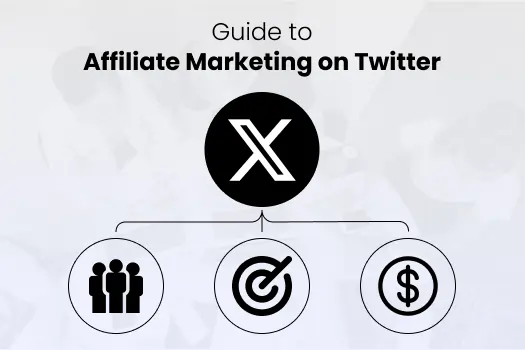Contents
- What is SaaS Marketing Automation?
- Why do you need SaaS Marketing Automation?
- Top 9 SaaS Marketing Automation Tools
- 1. EngageBay
- 2. HubSpot
- 3. Kit (Formerly Convertkit)
- 4. ActiveCampaign
- 5. GetResponse
- 6. Semrush
- 7. Hotjar
- 8. Omnisend
- 9. Drift
- How Much Does SaaS Marketing Automation Software Cost?
- Key Features of SaaS Marketing Automation Tools
- How do you choose the right SaaS marketing automation tool?
- The Role of Automation in SaaS Growth
- Integrating SaaS marketing automation into your business strategy
- Conclusion
In today's rapidly evolving Software-as-a-Service (SaaS) industry, effective marketing strategies are pivotal for companies aiming to achieve scalable growth.
SaaS marketing automation tools have emerged as indispensable solutions, enabling businesses to streamline operations, enhance customer engagement, and drive growth effectively.
This involves leveraging technology to manage marketing activities, track customer interactions, and analyze data to improve marketing efforts and engagement.
What is SaaS Marketing Automation?
SaaS marketing automation uses technology to automate repetitive marketing tasks for SaaS businesses.
This encompasses lead generation, email campaigns, and social media management. By automating these processes, companies can save time, reduce costs, and improve overall efficiency.
Marketing automation for SaaS further enhances these benefits by offering tailored solutions designed to address the unique challenges SaaS companies face.
It allows for advanced features such as customer segmentation, behavior-based triggers, and personalized messaging, essential for nurturing leads and retaining subscribers in a subscription-based model, which a SaaS marketing agency can expertly implement.
Why do you need SaaS Marketing Automation?
The exponential growth of the SaaS industry demands robust marketing strategies. Choosing the right marketing automation software is crucial for a SaaS business to facilitate personalized customer interactions, enhance lead nurturing, and optimize sales processes. They also play a crucial role in increasing revenue and reducing churn rates through effective marketing automation services.
Benefits of using SaaS Marketing Automation
-
Autopilot Marketing: Automating campaigns frees up resources, allowing teams to focus on core business functions like product development.
-
Increased Efficiency: By automating tasks, efficiency and productivity are enhanced, enabling teams to handle more strategic initiatives.
-
Improved Customer Experience: Personalized campaigns foster better customer relationships, leading to increased loyalty and advocacy. Automation tools can streamline the customer lifecycle, lifting the overall customer experience.
-
Lead Generation and Management: Automation tools facilitate efficient lead generation and streamline the sales funnel management process.
Top 9 SaaS Marketing Automation Tools
With numerous SaaS marketing tools available, choosing the right marketing automation SaaS tool can be a game-changer for your organization.
At Saffron Edge, our marketing automation specialists are skilled in leveraging the tools below to drive revenue growth for SaaS businesses. From streamlining workflows to optimizing customer journeys, we help you maximize your ROI with tailored strategies and expert execution.
Here are the top 9 SaaS marketing tools specifically designed for marketing automation for SaaS companies.
1. EngageBay

EngageBay is a versatile marketing automation and CRM platform designed for SaaS businesses aiming to simplify their marketing, sales, and customer service workflows. Its all-in-one suite integrates email marketing, CRM, and sales automation, offering businesses tools to nurture leads, personalize campaigns, and manage customer interactions seamlessly.
Key features
-
Marketing Automation: Create automated workflows for email sequences, lead scoring, and follow-ups.
-
Email Marketing: Use drag-and-drop builders to design engaging campaigns.
-
CRM with 360-Degree Customer View: Gain a holistic understanding of your customers.
-
Appointment Scheduling: Simplify booking processes for your team and clients.
-
Sales CRM: Manage pipelines and track sales performance.
-
Landing Pages and Web Forms: Build lead-generation assets without coding.
Pros
-
Combines marketing, CRM, and sales tools in one platform.
-
Affordable pricing for small businesses.
-
Simple drag-and-drop tools for emails and landing pages.
Cons
-
Lacks advanced features for larger businesses.
-
Limited customization options for workflows.
-
Limited integration options compared to competitors.
2. HubSpot

HubSpot is a popular marketing automation platform that integrates seamlessly with its CRM, CMS, and customer service tools. It offers a range of automation capabilities, but many advanced features are limited to its higher-tier plans.
While its free plan provides basic chatbot automation, businesses seeking full functionality must invest in the Professional or Enterprise tiers.
Key features
-
Workflow Automation: Create lead qualification, communication, and ad management workflows.
-
Analytics and Reporting: Customizable dashboards and detailed campaign insights.
-
Extensive Integrations: Supports over 1,600 apps, such as Salesforce, Zoom, and Zapier.
-
Omnichannel Tools: Chatflows, email campaigns, and surveys for streamlined communication.
-
User-Friendly Interface: Simplifies setup and navigation despite its depth.
Pros
-
Includes multiple communication tools like chat and email.
-
Easy-to-use interface.
Cons
-
Advanced features are expensive.
-
The free plan offers limited functionality.
3. Kit (Formerly Convertkit)

Kit is an email marketing platform for creators that offers saas automation, landing page creation, and audience analytics. It helps users grow their email lists, manage campaigns, and track performance.
Key features
-
Visual Automation Builder: Create email workflows with triggers and actions.
-
Email & Landing Page Templates: Pre-designed templates for fast creation.
-
Audience Analytics: Track engagement and subscribers' interactions.
-
Tags & Segments: Organize and target audience based on actions.
-
Integrations: Connect with other platforms like CRMs and website builders.
-
Customizable Templates: Create reusable email templates.
Pros
-
Easy to build email workflows.
-
Quick email and page creation.
-
Detailed tracking of subscriber actions.
-
Works with various third-party tools.
Cons
-
Expensive for small businesses.
-
Automation setup can be confusing.
-
It is best for creators, not for all business types.
-
Needs third-party tools for website or course management.
4. ActiveCampaign

ActiveCampaign is an all-in-one marketing platform designed to help businesses improve customer engagement, streamline communication, and drive conversions. Known for its advanced marketing automation, CRM capabilities, and ease of use, ActiveCampaign is a popular choice among marketers, small businesses, and enterprises alike.
Key features
-
Marketing Automation: Build custom workflows with behavior-based triggers and A/B testing.
-
Email Campaigns: Create and personalize emails using an intuitive drag-and-drop editor.
-
Advanced Segmentation: Target specific audiences with precision for better engagement.
-
CRM Integration: Sync marketing and sales with unified pipelines and contact management.
-
Landing Pages: It allows you to create and optimize landing pages with pre-made templates and A/B testing.
-
Live Chat and Messaging: Offer real-time support via live chat and multichannel messaging.
-
Ecommerce Integration: Connect with platforms like Shopify and WooCommerce to boost sales.
Pros
-
An easy-to-navigate platform with intuitive tools.
-
Advanced workflow automation to save time and increase engagement.
-
Seamless integration with popular apps and services.
-
Highly flexible for businesses of all sizes.
-
Offers 24/7 email support and a strong community.
Cons
-
Higher-tier plans can be costly.
-
Some templates and workflows lack deep customization options.
-
The free trial has restricted features, requiring a paid plan to unlock full capabilities.
5. GetResponse

GetResponse is an email marketing platform designed to help businesses with lead generation, customer engagement, and online sales. It offers tools for email campaigns, automation, analytics, and webinars, making it a practical choice for digital marketing.
Key features
-
Autoresponder: Automate email campaigns with ready-made templates and performance tracking.
-
Automation: Set up workflows to send emails based on user behavior, like welcome emails or promotions.
-
Email Analytics: Use metrics like open rates, click-through rates, and A/B testing to gain insights into campaign performance.
-
Conversion Funnel: Pre-designed funnels for lead generation, sales, webinars, and more.
-
Webinar Hosting: Host webinars for up to 1,000 attendees with tools for customization and promotion.
Pros
-
Combines email marketing, automation, and webinars in one platform.
-
Easy-to-use tools and templates for quick setup.
-
Detailed analytics to track and optimize campaigns.
-
Suitable for small businesses with affordable pricing plans.
-
Pre-designed workflows for easy automation.
Cons
-
Advanced features may take time to learn.
-
Limited flexibility in pre-made funnels.
-
Webinar attendee capacity is capped at 1,000.
6. Semrush

Semrush is a popular SEO tool for keyword research, competitor analysis, site audits, and backlink tracking. Its powerful features deliver data-driven insights that help marketers optimize SEO, PPC, and content marketing campaigns.
With a vast database and user-friendly interface, SEMrush allows users to monitor keyword rankings, assess website health, and improve digital marketing strategies.
Key features
-
Keyword Magic Tool: This tool helps with keyword research by providing access to a database of over 20 billion keywords. It shows search volume, competition, and keyword intent.
-
Site Audit Tool: Scans websites for over 120 technical SEO issues like broken links, slow loading times, and duplicate content. Provides recommendations for fixes.
-
Backlink Analytics: Monitors backlinks and checks their quality. Identifies harmful backlinks and offers competitor backlink analysis.
Pros
-
Easy to use, even for non-technical users.
-
Provides clear insights and actionable recommendations.
-
Ongoing site audits for continuous optimization.
-
Competitor analysis helps improve SEO strategy.
Cons
-
Expensive for small businesses.
-
Beginners may need some time to get friendly.
-
Some features are limited to higher-tier plans.
7. Hotjar

Hotjar is a behavior analytics tool that helps website owners track user behavior using heatmaps, session recordings, surveys, and feedback tools. It allows businesses to improve website usability, understand user preferences, and increase conversion rates. Hotjar also lets you customize website content to better engage visitors.
Key features
-
Heatmaps: Shows where users click, scroll, and hover on a webpage to help identify areas of interest.
-
Session Recordings: Record user sessions to analyze how visitors navigate the website.
-
Surveys and Polls: Collects user feedback to understand their experience and gather suggestions.
-
User Behavior Analytics: Tracks user actions to provide data for improving website design and user experience.
-
Easy Integration: This can be integrated quickly through Google Tag Manager or by adding a simple code snippet to your website.
Pros
-
Easy to set up with no technical skills required.
-
Cost-effective for small to medium businesses.
-
Provides immediate feedback through heatmaps and surveys.
-
It helps identify areas to improve user experience and increase conversions.
Cons
-
It does not record organic traffic, limiting insights on search engine visitors.
-
Customer service response times can be slow.
-
Lower-tier plans restrict the number of heatmaps that can be created.
-
Pricing can be high.
8. Omnisend

Omnisend is a marketing automation platform built to help eCommerce businesses. It supports email, SMS, and push notifications to automate customer engagement. Omnisend offers an easy-to-use interface, advanced features even in its free plan, and customizable workflows to optimize marketing efforts and increase conversions.
Key features
-
Email, SMS, and Push Notification Automation: Automates campaigns across email, SMS, and push notifications. Includes pre-built workflows or the option to create custom ones.
-
Advanced Segmentation: Allows customers to be segmented based on behavior or custom criteria to target specific groups more effectively.
-
Drag-and-Drop Workflow Builder: A simple interface to create and manage automated workflows without technical skills.
-
Customizable Email Templates: A selection of email templates that can be fully customized with a user-friendly editor.
-
AI Assistant: Helps write email content using AI, streamlining the content creation process.
-
A/B Testing: Tests different versions of emails to find the best-performing content.
Pros
-
The free plan includes unlimited emails, automation workflows, and segmentation.
-
The drag-and-drop interface makes it easy to set up campaigns.
-
24/7 support and access to learning resources.
-
Includes A/B testing, AI content assistance, and customizable email templates.
Cons
-
Best suited for eCommerce businesses, not ideal for non-eCommerce users.
-
Some features need a live eCommerce site to work correctly.
-
Some advanced features may feel too simplified for complex needs.
-
Pricing can be high for larger teams or businesses needing more advanced features.
9. Drift

Drift is a marketing and sales platform that helps businesses engage with website visitors in real time. It uses AI-driven chatbots, personalized messaging, and targeted landing pages to convert visitors into leads. Drift focuses on improving the customer journey, from lead generation to post-sales, making engaging and converting leads easier.
Key features
-
AI Chatbots: Automates conversations and qualifies leads.
-
Personalized Messaging: Customizes messages based on visitor behavior.
-
Real-Time Conversations: Connects with visitors instantly to boost conversions.
-
Targeted Landing Pages: Optimizes landing pages to capture leads.
-
Lead Routing: Direct leads to the appropriate sales reps.
-
Integrations: Syncs with CRMs and other tools.
-
Post-Sales Automation: Engages customers after the sale.
Pros
-
Reduces manual lead qualification tasks.
-
Works well with existing systems.
Cons
-
Some features may be complex for new users.
-
Not ideal for non-SaaS or non-B2B businesses.
With the right SaaS companies marketing automation tools, businesses can streamline workflows, enhance lead nurturing, and drive measurable growth."
How Much Does SaaS Marketing Automation Software Cost?
Pricing for SaaS marketing automation tools varies based on features and the number of contacts.
Plans range from basic tier subscriptions to enterprise-level solutions catering to diverse business needs.
-
Pricing Models: SaaS marketing automation software often offers different pricing models, such as subscription-based, tiered, or pay-as-you-go. Subscription models typically include monthly or annual fees, while tiered pricing can vary based on features, user count, or usage levels.
-
Feature Sets: Costs can vary widely depending on the features included. Basic plans may offer essential tools for SaaS email marketing and lead management, while more advanced plans with features like AI-driven analytics, advanced segmentation, and multi-channel campaign management can be more expensive.
-
User Count and Scalability: Many providers price their software based on the number of users or contacts. Larger teams or growing businesses may need higher-tier plans to accommodate more users or additional contacts, which can increase costs.
-
Additional Costs: Besides base subscription fees, add-ons such as advanced analytics modules, additional storage, or premium support services may incur additional costs. It's important to consider these potential extra expenses when budgeting.
-
Free Trials and Demos: Many SaaS marketing automation platforms offer free trials or demos, allowing businesses to explore the features and assess whether the software meets their needs before committing to a subscription. This can help understand the value relative to the cost.
Key Features of SaaS Marketing Automation Tools
Understanding the key features of marketing automation for SaaS is essential for maximizing your marketing efforts and driving business growth.
-
Lead Management: From lead capture to conversion, automation tools streamline the entire lead management process, ensuring no potential opportunity is missed.
-
Campaign Management: Marketing automation workflows simplify the execution of multi-channel marketing campaigns, optimizing engagement and conversion rates.
-
Analytics and Reporting: Advanced analytics capabilities provide insights into campaign performance, ROI, and customer behavior, enabling data-driven decision-making.
-
Segmentation and Personalization: Robust segmentation features allow for targeted communication based on demographics, behavior, and engagement. Personalization of content and offers improves customer engagement and conversion rates.
-
Integration Capabilities: Extensive integration options with CRM platforms, e-commerce solutions, and social media networks ensure a cohesive marketing strategy and seamless data flow.
-
Workflow Automation: Automated workflows manage complex processes, such as lead nurturing and customer onboarding, saving time and ensuring consistency in marketing efforts.
-
Customer Journey Mapping: Tools for mapping customer journeys help visualize and manage interactions at different stages, enabling personalized experiences and improved customer satisfaction. This approach is a key component of an effective marketing automation strategy.
-
Behavioral Triggers: Real-time behavioral triggers respond to user actions, such as cart abandonment, with targeted follow-ups to increase conversion chances.
By leveraging these key features in marketing automation for SaaS, businesses can enhance efficiency, improve targeting, and achieve better overall results.
How do you choose the right SaaS marketing automation tool?
Choosing the right SaaS marketing automation tool is vital for effective B2B SaaS marketing. Understanding your business needs and evaluating features will guide your decision-making process.
-
Identify Your Needs: Determine your marketing objectives and required features to ensure the tool aligns with your SaaS marketing strategy.
-
Evaluate Integration Capabilities: Choose a tool that integrates seamlessly with your existing systems and tech stack.
-
Consider Ease of Use: Opt for a user-friendly interface and tools with good training and support resources.
-
Assess Scalability and Flexibility: Select a tool that can grow with your business and adapt to changing needs.
-
Review Pricing and Value: Compare pricing models to ensure the tool fits your budget and offers good value for its features.
-
Check for Customer Support: Look for reliable customer support with good responsiveness and resources.
-
Read Reviews and Seek Recommendations: Research user feedback and industry recommendations to gauge the tool’s performance and reliability, especially for features like email marketing automation.
Selecting the right SaaS marketing automation tool can significantly enhance your B2B SaaS marketing strategy, driving efficiency and improving customer engagement for sustainable growth.
The Role of Automation in SaaS Growth
Automation tools enable a SaaS company to implement sophisticated marketing strategies that are scalable and measurable. SaaS companies' marketing automation enhances efficiency and drives business growth.
Companies can focus on strategic initiatives that drive growth by automating repetitive tasks such as email campaigns, lead scoring, and customer segmentation.
-
Scalability: Automation enables SaaS companies to scale their operations efficiently. By automating repetitive tasks such as onboarding, customer communication, and lead nurturing, businesses can handle increased demand and growth without a proportional increase in resources or manpower.
-
Enhanced Customer Engagement: Automation facilitates personalized and timely customer interactions, improving engagement and satisfaction. Automated email sequences, targeted content delivery, and behavior-triggered campaigns help maintain customer interest and foster long-term relationships.
-
Data-Driven Decision Making: Automation tools provide valuable insights through advanced analytics and reporting. By analyzing customer data and campaign performance, SaaS companies can make informed decisions, optimize their marketing strategies, and identify growth opportunities.
Integrating SaaS marketing automation into your business strategy
Implementing B2B SaaS marketing automation requires a strategic approach to ensure seamless integration and maximum ROI.
Here are key steps to effectively integrate automation tools into your business strategy:
-
Assess Business Needs: Identify specific marketing challenges and goals that automation can address, such as lead generation, customer retention, or campaign optimization.
-
Select the Right Tool: Choose an automation platform that aligns with your business size, budget, and marketing requirements. Consider factors like scalability, integration capabilities, and ease of use.
-
Define Workflows: Develop automated workflows that streamline marketing processes and enhance efficiency. Map out customer journeys, from initial contact to conversion and beyond, to create personalized experiences.
-
Integrate with Existing Systems: Ensure seamless integration with CRM systems, email platforms, and other marketing tools to leverage data effectively and optimize workflows.
-
Monitor and Optimize: Continuously monitor campaign performance and user engagement using analytics tools provided by your automation platform. Use insights to refine strategies, improve targeting, and maximize ROI.
Conclusion
SaaS marketing automation is not just a trend but a system that will stay long. It is a strategy imperative for businesses looking to scale operations efficiently and drive sustainable growth.
Adopting and integrating advanced automation technologies will be key to staying competitive and meeting the demands of today's digital-first consumers.
Contact us today to learn how Saffron Edge can modernize your customer relationships and marketing efficiency approach.
Get The SaaS Marketing Toolkit
Frequently Asked Questions
What is SaaS Marketing Automation?
SaaS marketing automation uses software to streamline marketing tasks for SaaS companies, such as email campaigns, lead generation, and customer engagement. It helps businesses deliver personalized experiences, nurture leads, and improve customer retention.
What is a SaaS Marketing Strategy?
A SaaS marketing strategy focuses on attracting, converting, and retaining customers for SaaS products. It includes content marketing, SEO, social media, and customer success initiatives to build long-term relationships and maximize customer lifetime value.
What is CRM Marketing Automation?
CRM marketing automation involves using a CRM platform to automate tasks like personalized emails, follow-ups, and lead scoring. This improves customer interaction, helps nurture leads, and aligns marketing and sales efforts to boost conversion rates.
Is ActiveCampaign a SaaS?
Yes, ActiveCampaign is a SaaS platform that offers cloud-based email marketing, automation, and CRM services, helping businesses manage their marketing and customer relationships online.
What is CRM Marketing Automation?
CRM marketing automation integrates marketing automation within a CRM system to automate email campaigns and lead-tracking tasks. This enhances efficiency, personalizes communication, and improves the overall customer journey.
How to Build a SaaS Marketing Plan?
Start by identifying and segmenting your target audience and setting clear goals. Create a strong value proposition and choose marketing channels that fit your audience. Develop a content strategy to guide prospects through the funnel and use automation tools to nurture leads. Track KPIs and adjust your strategy as needed.
What Are the Services Needed to Do SaaS Marketing?
SaaS marketing requires content creation, SEO, PPC, email marketing, and social media management. Analytics track performance, while CRM and automation tools streamline customer interactions and tasks.
What Are the Best SaaS Marketing Tools?
Top tools include HubSpot for all-in-one marketing, Marketo Engage for advanced automation, and ActiveCampaign for easy-to-use CRM and automation. Hootsuite and Buffer manage social media, Ahrefs and SEMrush help with SEO, and Google Analytics tracks user behavior. Salesforce Marketing Cloud offers multi-channel marketing, Canva for design, Drip for e-commerce, and Zapier for workflow automation.
What is B2B SaaS Marketing?
B2B SaaS marketing promotes SaaS products to businesses, targeting decision-makers and teams. It highlights how the solution solves business challenges and improves efficiency. Common strategies include content marketing, SEO, targeted advertising, email campaigns, and webinars, all aimed at building trust and nurturing leads.
What Does a SaaS Marketing Service Company Offer?
A SaaS marketing service helps attract, nurture, and convert leads into customers. This includes creating SEO-optimized content, running paid ads, and using automated email campaigns for engagement. Social media management builds brand presence, while webinars and demos showcase product value. Lead scoring and CRM integration prioritize leads, and analytics measure performance to refine strategies and improve ROI.
Related Blogs
We explore and publish the latest & most underrated content before it becomes a trend.
5 min read
B2B Programmatic Advertising: The Future of Targeted B2B Marketing
By Sabah Noor6 min read
Affiliate Marketing on X: A Complete Guide to Monetize Twitter with Affiliate Links
By Sabah Noor2 min read
How Content Marketing is Different From Inbound Marketing
By Praveen Kumar
Subscribe to Saffron Edge Newsletter!

Get The SaaS Marketing Toolkit










